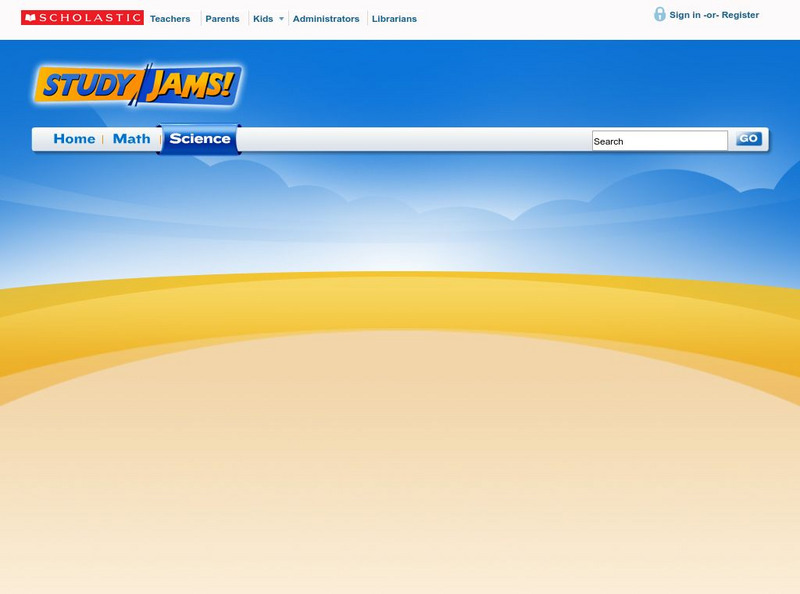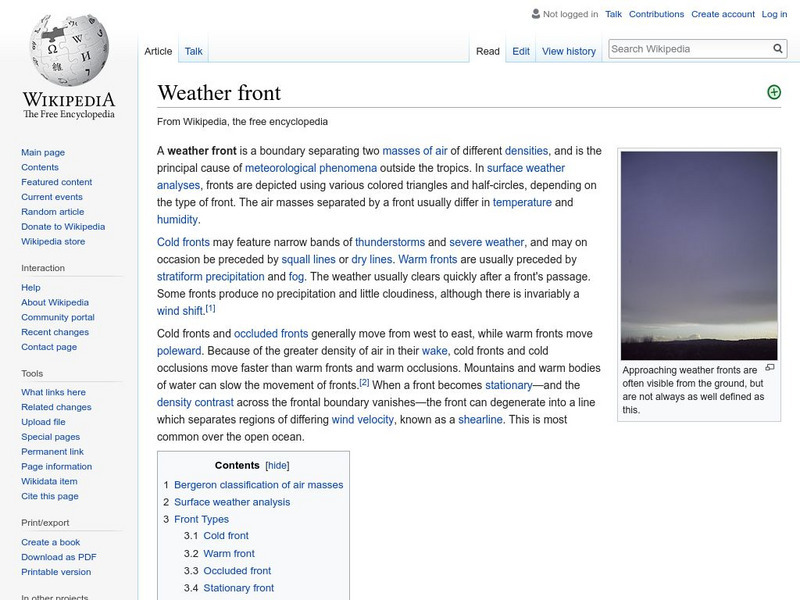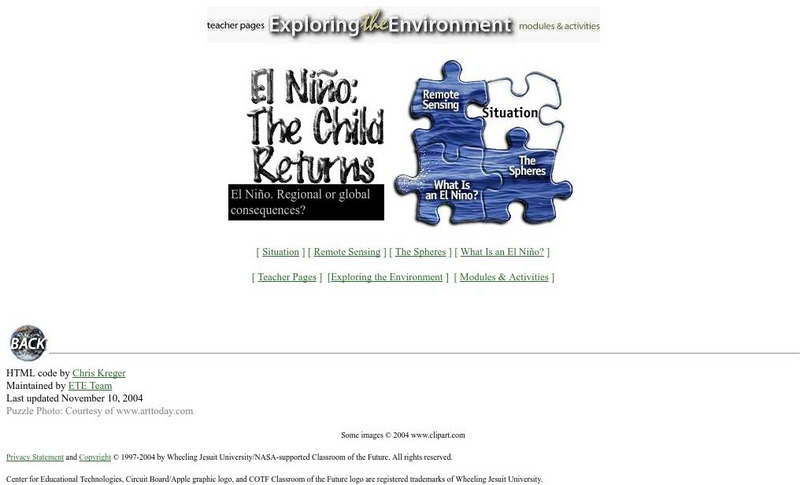Read Works
Read Works: Weather: Air Patterns
[Free Registration/Login Required] An informational text about wind patterns and how they relate to clouds, storms, and lightning. A question sheet is available to help students build skills in reading comprehension.
Discovery Education
Discovery Education: Weather Maps
This site provides a lesson plan in which groups of students will each investigate a different type of weather map use for weather forecasting. Also includes discussion questions, extension ideas, and links to additional sites for more...
Scholastic
Scholastic: Study Jams! Science: Weather & Climate
A video and a short multiple-choice quiz on the topic of weather and climate, and the difference between them.
Weather Wiz Kids
Weather Wiz Kids: Wind
Wind is air in motion. It is produced by the uneven heating of the earth's surface by the sun. Since the earth's surface is made of various land and water formations, it absorbs the sun's radiation unevenly. Two factors are necessary to...
Other
Digital Library for Earth System Education: Teaching Box: Essentials of Weather
A suite of lessons focusing on the basic elements of climate and weather. Inquiry-based exploration of extreme weather events and the factors of weather including clouds, wind, air pressure, temperature, and the water cycle.
Idaho State University
Global Wind Systems [Pdf]
A great description of the global scale circulation and heat energy. Discusses a single-cell model, a three-cell model, jet streams and more.
Wikimedia
Wikipedia: Weather Front
This Wikipedia site tells all about weather fronts, or boundaries between two air masses with differing characteristics. Includes many hyperlinked terms to additional information on related subjects.
University of Illinois
University of Illinois Extension: Ww2010: Radar Meteorology
This site from the University of Illinois explains basic principles of weather radar, its development, and application to weather forcasting. Includes section on how wind patterns are shown using doppler radar.
Center for Educational Technologies
Exploring the Environment El Nino: The Child Returns
Use remote sensing data and background information to look at regional and global consequences of El Nino. Try working with the 'situation' to test your understanding.







